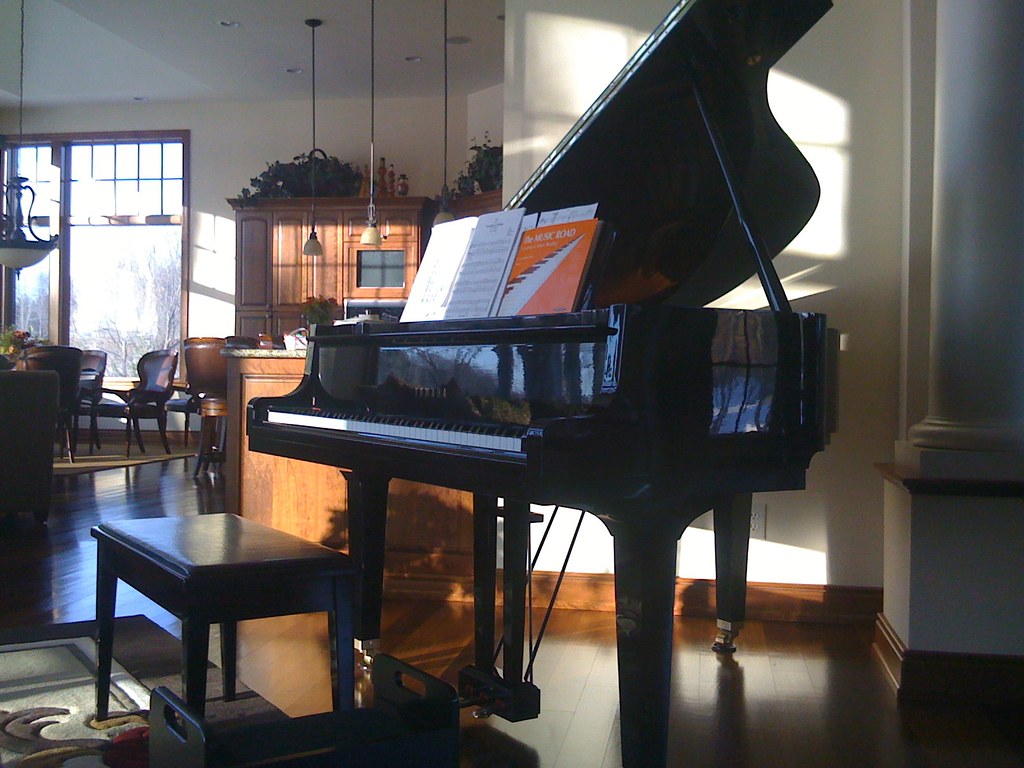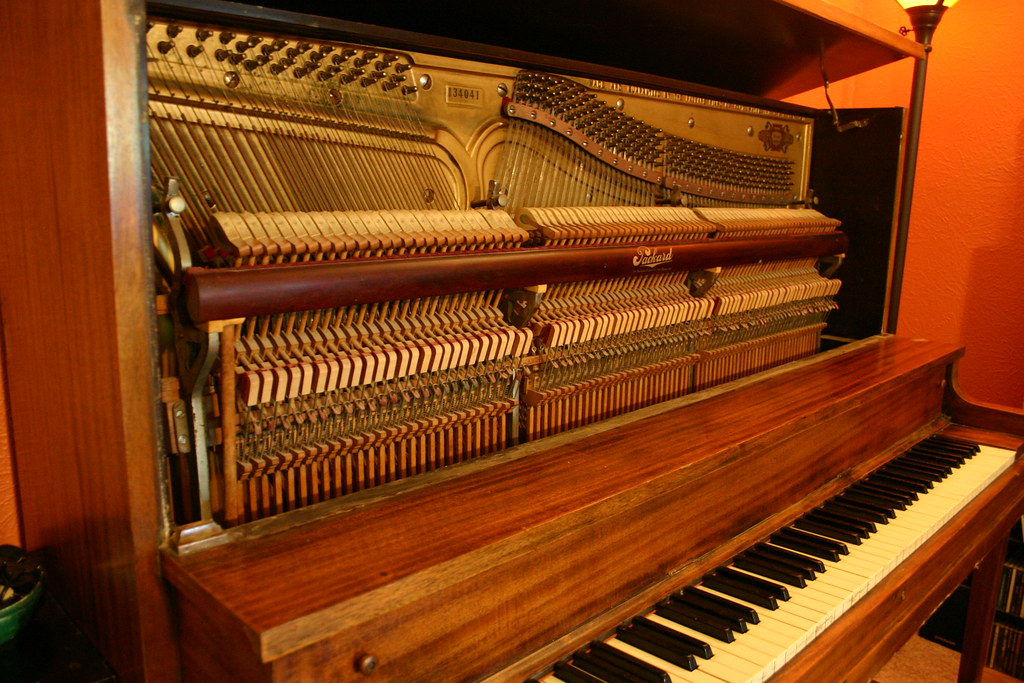 An acoustic piano is a complex musical instrument that is made up of many different components, each with its unique role in producing the sound. Here are the main components of an acoustic piano, their roles, and what to consider when choosing an acoustic piano:
An acoustic piano is a complex musical instrument that is made up of many different components, each with its unique role in producing the sound. Here are the main components of an acoustic piano, their roles, and what to consider when choosing an acoustic piano:
- Soundboard: The soundboard is the large wooden panel that sits at the back of the piano, just below the strings. Its role is to amplify the vibrations of the strings and project the sound of the piano out into the room. When choosing an acoustic piano, consider the quality and size of the soundboard, as it plays a significant role in the tone and volume of the instrument.
- Strings: The strings are the most critical component of the piano as they are responsible for producing the sound. The strings are stretched across the piano’s body and are struck by hammers when the keys are pressed. When choosing an acoustic piano, consider the quality and length of the strings, as this will affect the instrument’s sound and sustain.
- Hammers: The hammers are the small, felt-covered wooden pieces that hit the strings when the keys are pressed. The quality and weight of the hammers will affect the piano’s touch, dynamics, and tone. When choosing an acoustic piano, pay attention to the quality of the hammers and make sure they are properly aligned with the strings.
- Keys and Action: The keys are the part of the piano that the player presses to make a sound. The action consists of the mechanical parts that connect the keys to the hammers, allowing the player to control the volume and tone of the instrument. When choosing an acoustic piano, consider the feel and responsiveness of the keys and action, as this will affect the player’s ability to express themselves musically.
- Cabinet and Finish: The cabinet is the external shell of the piano and is usually made of wood. The finish is the coating on the cabinet, which can affect the piano’s appearance and durability. When choosing an acoustic piano, consider the quality of the cabinet and finish, as well as how well it will fit into the space where it will be used.
In summary, when choosing an acoustic piano, it’s essential to consider the quality of the soundboard, strings, hammers, keys, action, cabinet, and finish. These components will affect the piano’s sound, touch, appearance, and durability. It’s also important to choose an acoustic piano that fits the player’s needs, preferences on tonal characteristics and playability, and budget.

Several tips to take care of your acoustic piano
- Keep it clean: Dust and dirt can accumulate on the piano’s keys, strings, and soundboard, affecting the sound and touch of the instrument. To clean the piano, use a soft, dry cloth to wipe down the keys, strings, and soundboard regularly. Avoid using any cleaning products or liquids that can damage the finish or components of the piano.
- Control humidity: Acoustic pianos are sensitive to changes in humidity, which can cause the soundboard to expand or contract, affecting the sound of the instrument. To keep the humidity levels in check, use a humidifier in dry conditions and a dehumidifier in damp conditions. Aim for a humidity level of around 40-50%.
- Tune regularly: Acoustic pianos need to be tuned regularly to maintain their sound and pitch. Plan on tuning the piano at least once a year or more often if it’s used frequently or subjected to extreme temperature or humidity changes.
- Avoid direct sunlight: Direct sunlight can cause the finish of the piano to fade and the wood to warp, affecting the instrument’s appearance and sound. To protect the piano, position it away from direct sunlight or use curtains or blinds to filter the light.
- Keep it at a stable temperature: Acoustic pianos are also sensitive to temperature changes. Avoid placing the piano near drafty windows or doors, heating vents, or air conditioning units. A stable temperature of around 68-72°F is ideal for most pianos.
- Regular maintenance: Regular maintenance, including regulation and voicing, can help keep the piano in top condition. Hire a professional piano technician to perform regular maintenance on your piano.










































































































